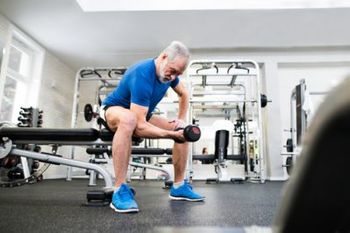People of all ages can benefit from regular exercise, but this becomes a bigger priority as we get older, when health and wellbeing are pushed to the forefront. Exercise can prevent illness and preserve quality of life, two considerations which gain significance in later years. Our bodies change as we get older, but why exactly is fitness so important for seniors?
Well, scientific researches suggests by age 65, the cardiovascular system decreases 30% in cardiac output, as the muscular system undergoes a 40% loss of muscle mass. This affects the metabolism, where older individuals have less energy to exercise as the body allocates energy to focus on metabolic activity and fight illness. Though this can be viewed from a discouraging perspective, especially as you experience increases in body fat percentage and decreases in bone density, it’s important to adopt a different train of thought.
Use your body’s degenerative tendencies as encouragement to exercise more, to stave off attrition and ensure your life has optimum longevity. Age shouldn’t be a restrictive factor, so never give up. Your body will respond well to exercise regardless of how old you are, though it’s important to introduce exercise gradually. You’re probably wondering what to focus on, but don’t worry because you’re in the right place!
What Types of Exercise Are Recommended?
A great foundation for your fitness regime is to focus on strength training, performing exercises which replicate everyday movements, including step ups, squats in a seated position etc. These will improve your functional strength and fitness, making everyday activities easier to perform. It’s important to get creative with your workouts, focusing on improving strength, mobility, and balance. Alternating between upper and lower body movements, with short recovery times in between, is a great way to improve your cardiovascular system.
Assess your starting position to evaluate your priorities, ensuring you can competently perform exercises without risking injury. Before engaging in full workouts, test the mobility and stability of your joints and muscles. This will provide reassurance and peace of mind for future endeavors. Once you’ve established a starting point, you can gradually increase the intensity of your workouts if you feel comfortable doing so.
Light aerobic exercise like walking or indoor biking can complement your strength workouts. You can easily perform activities of this nature, at your own pace, creating a level of comfort which suits your individual needs.
Though physical activity won’t exactly stop the ageing process, it can definitely delay it. Most importantly, by engaging in exercise you’ll improve your quality of life, while preventing illnesses which are best avoided if you want to live for a long time.

